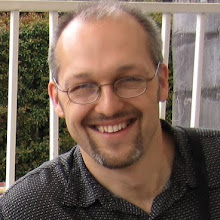One more little gold nugget from Roy Hession, in We Would See Jesus, responding to Jesus' teaching, "I am the true vine." He writes: "We start the day as if it were our day and we make our plans for our day and fully intend to do our best for the Lord. The responsibility and government is really on our shoulders, and we have subtly become the vine. But just because it is our day and we are the vine, things soon go wrong. People and circumstances upset our schedule and interfere with what we wanted to do, and there is a reaction of hardness, irritation, and resentment in our hearts, and often the sharp retort on our lips. The very responsibility of being the vine makes us tense, and tenseness always predisposes us to further sin. . . .
"The way of repentance, however, is ever open to us. Our true Vine, Jesus himself, has, like many an ordinary vine, been tied to a stake, the stake of Calvary. He invites us to return to him in repentance and to confess the source of these things as being our attempt to be ourselves the vine, receiving from His hands forgiveness and cleansing. Immediately he becomes the Vine to us again and we become the branch that rests in him. And in the very place of failure, we have the fruits of the Spirit, the products of his life and nature" (p. 91).
". . . there must be the willingness to be broken and become available to Him as a branch. A branch has no independent life of its own. It exists only to bear the fruit of the Vine. So it must be with us in our relationships to the Lord Jesus. What a battle there is in our hearts so often with our selfishness and personal interests! So often we are just not available to him because we have lapsed back to our old center, self. But it must be surrendered if we are to be available to him as his branch, and that not just in one sweeping surrender, which we may make in a solemn moment of dedication, but just as things come up and as he deals with us. This will involve a continuous dying to self and its rights and wishes, but only so can the Lord Jesus bring forth his fruit on the branch."

